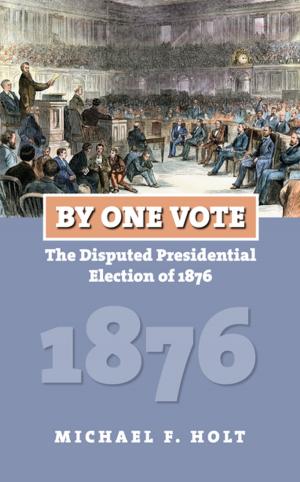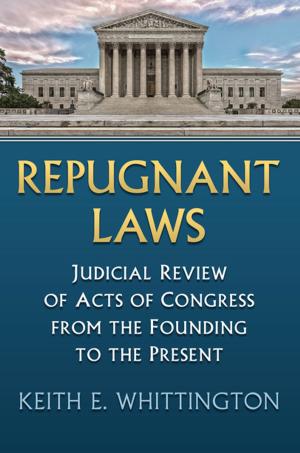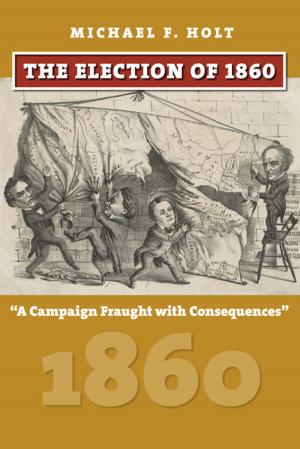The One-Party Presidential Contest
Adams, Jackson, and 1824's Five-Horse Race
Nonfiction, Social & Cultural Studies, Political Science, Government, Elections, History, Americas, United States, 19th Century| Author: | Donald Ratcliffe | ISBN: | 9780700621590 |
| Publisher: | University Press of Kansas | Publication: | November 16, 2015 |
| Imprint: | University Press of Kansas | Language: | English |
| Author: | Donald Ratcliffe |
| ISBN: | 9780700621590 |
| Publisher: | University Press of Kansas |
| Publication: | November 16, 2015 |
| Imprint: | University Press of Kansas |
| Language: | English |
The election of 1824 is commonly viewed as a mildly interesting contest involving several colorful personalities—John Quincy Adams, Andrew Jackson, Henry Clay, John C. Calhoun, and William H. Crawford—that established Old Hickory as the people's choice and yet, through "bargain and corruption," deprived him of the presidency. In The One-Party Presidential Contest, Donald Ratcliffe reveals that Jackson was not the most popular candidate and the corrupt bargaining was a myth. The election saw the final disruption of both the dominant Democratic Republican Party and the dying Federalist Party, and the creation of new political formations that would slowly evolve into the Democratic and National Republicans (later Whig) Parties—thus bringing about arguably the greatest voter realignment in US history.
Bringing to bear over 35 years of research, Ratcliffe describes how loyal Democratic Republicans tried to control the election but failed, as five of their party colleagues persisted in competing, in novel ways, until the contest had to be decided in the House of Representatives. Initially a struggle between personalities, the election evolved into a fight to control future policy, with large consequences for future presidential politics. The One-Party Presidential Contest offers a nuanced account of the proceedings, one that balances the undisciplined conflict of personal ambitions with the issues, principles, and prejudices that swirled around the election. In this book we clearly see, perhaps for the first time, how the election of 1824 revealed fracture lines within the young republic—and created others that would forever change the course of American politics.
The election of 1824 is commonly viewed as a mildly interesting contest involving several colorful personalities—John Quincy Adams, Andrew Jackson, Henry Clay, John C. Calhoun, and William H. Crawford—that established Old Hickory as the people's choice and yet, through "bargain and corruption," deprived him of the presidency. In The One-Party Presidential Contest, Donald Ratcliffe reveals that Jackson was not the most popular candidate and the corrupt bargaining was a myth. The election saw the final disruption of both the dominant Democratic Republican Party and the dying Federalist Party, and the creation of new political formations that would slowly evolve into the Democratic and National Republicans (later Whig) Parties—thus bringing about arguably the greatest voter realignment in US history.
Bringing to bear over 35 years of research, Ratcliffe describes how loyal Democratic Republicans tried to control the election but failed, as five of their party colleagues persisted in competing, in novel ways, until the contest had to be decided in the House of Representatives. Initially a struggle between personalities, the election evolved into a fight to control future policy, with large consequences for future presidential politics. The One-Party Presidential Contest offers a nuanced account of the proceedings, one that balances the undisciplined conflict of personal ambitions with the issues, principles, and prejudices that swirled around the election. In this book we clearly see, perhaps for the first time, how the election of 1824 revealed fracture lines within the young republic—and created others that would forever change the course of American politics.















